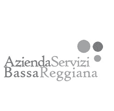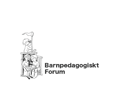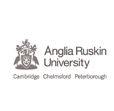The general definition of “public spaces” (Right of public access) in Sweden is: “You make use of the right of public access when you go for a walk in the forest, paddle a kayak, go climbing or just sit on a rock and think. The right of public access applies both on land and water. In nature close to population centres the right of public access is all the more important It enables many people to take part in nature activities close to home without going away. In populated areas many people live side by side, sometimes in crowded spaces. The right of public access makes it easier for all of us to coexist in nature in a respectful manner and to avoid conflicts and wear and tear on the land.”
“Almekärrs preschools, consists of 5 houses, is situated close to forest, lake and horse stables. Prescholls in Kärra area 1 are located in a residential area close to major roads, Kärra Square, River and Forest. The focus Groups first meeting was the 7 January 2014. The meeting was attended by ten teachers and one pedagogista. We documented by videotape”.
Almekärrs preschools, consists of 5 houses, is situated close to forest, lake and horse stables. Participants in this conversation were the focus group consisting of five teachers.
What do we mean by public spaces?
There are places that we visit with the children. Most of the sites are located adjacent to the preschool. In these places, we meet other adults and also animals. It is democratic spaces where we can share the experiences of others.
If we let the children take their place in society, it may eventually become democratic. We let the children make a mark on the place they are visiting. It is becoming democratic meetings between people when the children are visible on squares and other public places. This gives children the opportunity to display their thoughts and opinions.
- Pre-school
- Pre-school yard
- Forrest
- Streets
- Square
- The local beach
- Park
- Library
- All public facilities
A democratic meeting is when you are affected and can influence by listening and arguing. – Citizen’s / children’s opportunities to be active co-creators of the future. To be a democratic citizen in their own town and neighborhood. That the children are citizens who are taken seriously. The fact that children have a right to see the world from different perspectives.
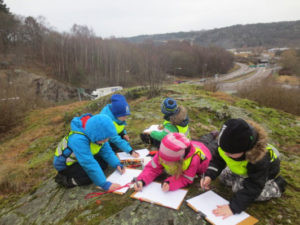
Which public spaces would you want to use with children?
The pre-school yard – develop this into a meeting place.
Retirement home – cooperate in some way.
Let the children make some kind of mark for example a painting or their wise words in scripted on stone slabs in the square.
Let the parents and grandparents knowledge and experiences be a part of our public space, the pre-school.
Streets and squares – become a larger part of the society. Sweden is segregated in many different ways.
These different aspects can be joined together:
We would like the children to be a bigger part in our community by for example helping to plan new pre-schools and other local facilities when building a new area.
- Square
- Housing for the elderly
- Senses Garden
- Theatre
- Libraries
- Forests
- River
- Gothenburg, museums and concert halls
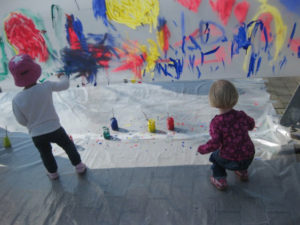
How could you democratically engage young children in these spaces?
We need to organize and plan our excursions because some of the locations require travel by bus.
If we develop our partnership with parents, they may assist in the excursions, etc.
We want to be at square , library and retirement home continuously.
Every year at the Preschool Day we are in the square and have activities where our children are painting , singing and talking to all visitors. We also exhibit at the library once / year where we show what we are working on our preschool . We have begun a collaboration with retirement home, where we encountered, the elderly and children. There is a garden called the Senses Garden, it is also a meeting place ; old – children.
Our vision is to be more visible in square and the library , not just when it’s Preschool Day. We want continuity. We let the children take responsibility when we borrow books from the library , they themselves can ask the librarian. We can present the preschool in display window in shops.
We would have to start off by finding out what earlier experiences, interests and knowledge the children have of these spaces. If we want the children to become engaged in these areas we have to take their perspective and ask open questions. It is when the children feel that their point of views are taken seriously by the pre-school teachers that they also get even more interested and inspired.
The children realize that their voices are heard and taken seriously that they have an opportunity to make an affect in these spaces. It is, primarily, the public spaces in the pre-school that are easiest for the children to make differences in. These include the pre-school yard, the Piazza and a room adjoined to the Piazza where activities that include a lot of movement can be held. It is harder for the children to affect public areas such as the town square..
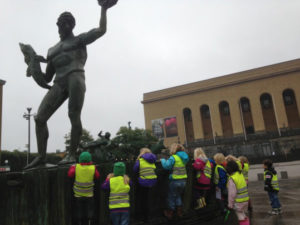
Some reflections
The discussions in the focus group have engaged the pedagogues very much. The pedagogues have reflected both in filosofical and practical ways. There has been connections between the goals of the preschools and the aim of the planned project BRIC. The discussions in the focusgroups have disseminated to and stimulated all the pedagogues in the preschools. The discussions have also widened the interest of the pedagogues to involve parents and politicians.
The interpretation of the task for the focusgroups has been a litte bit different. That´s why it is very important to communicate between the different preschools and countries.

